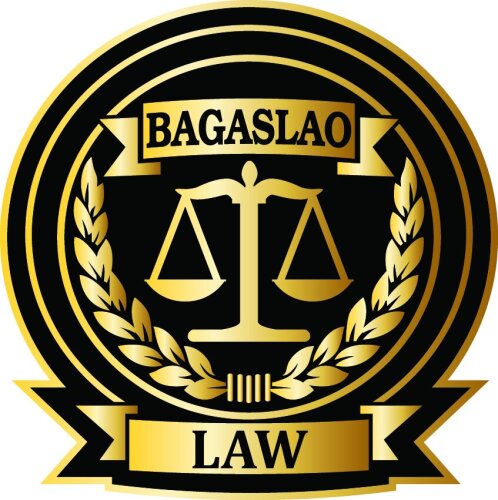Best Divorce & Separation Lawyers in Canada
Share your needs with us, get contacted by law firms.
Free. Takes 2 min.
Free Guide to Hiring a Family Lawyer
Or refine your search by selecting a city:
List of the best lawyers in Canada
About Divorce & Separation Law in Canada
Divorce and separation in Canada are governed by both federal and provincial laws. The Divorce Act is the federal law that deals with divorce, child support, and spousal support in Canada. It applies to all provinces and territories. Issues like property division and child custody fall under provincial jurisdiction. The process involves legal and emotional considerations, making it important for those involved to understand their rights and obligations. Canada follows a "no-fault" divorce system, meaning you do not have to prove any wrongdoing by your spouse to obtain a divorce.
Why You May Need a Lawyer
Legal assistance is highly recommended in situations involving divorce and separation due to their complexity and significant life impact. You may need a lawyer to:
- Navigate the legal paperwork and ensure compliance with legal procedures.
- Provide guidance on child custody and support arrangements.
- Advocate for fair division of property and assets.
- Address any spousal support concerns.
- Help you understand your rights and develop a strategic approach to your case.
- Offer mediation or negotiation support to reach amicable agreements.
Local Laws Overview
Key aspects of divorce and separation laws in Canada include:
- Residency Requirements: One spouse must have lived in the province for at least one year before applying for a divorce there.
- Grounds for Divorce: The most common ground is living apart for one year. Adultery and cruelty are also grounds, though they require evidence.
- Child Custody and Support: Decisions are made in the child's best interest, considering factors such as stability and caregiving ability.
- Spousal Support: Determined based on need, ability to pay, and other factors like the length of the marriage.
- Property Division: Generally, marital property is divided equally unless otherwise agreed upon or determined by the court.
Frequently Asked Questions
What is the difference between separation and divorce?
Separation means living apart from your spouse with the intent to end the relationship, while divorce is the legal dissolution of the marriage.
How long do I need to be separated before I can file for divorce?
Under Canadian law, couples need to be separated for a minimum of one year before finalizing a divorce, although you can start the process sooner.
Do we have to go to court to get divorced in Canada?
If both parties agree on all terms, you might not have to appear in court. Uncontested divorces can often be processed through filing paperwork.
How is child custody determined?
The best interests of the child are the primary consideration. Factors include the child's emotional and educational needs, stability, and the ability of each parent to care for the child.
Will spousal support be required after a divorce?
Spousal support depends on several factors, including the payer's ability to provide support, the recipient's need, and the length of the marriage.
What happens to our property after divorce?
Marital property is typically divided equally. However, certain assets might be exempt, and agreements can be reached through negotiation or mediation.
Can I move to a different province with my child after separation?
Relocation that might affect the child's relationship with the other parent usually requires consent from the other parent or the court.
What is mediation, and is it mandatory?
Mediation is a process to help clarify issues and reach mutual agreements with a neutral third party. It is not mandatory but can be helpful and cost-effective.
Can I receive child support if I am not divorced?
Yes, child support arrangements can be made irrespective of the marital status, based on custodial arrangements and provincial guidelines.
How can I change a maintenance order?
You can apply to the court to vary a support order if there is a significant change in circumstances, like income change or custody arrangements.
Additional Resources
For further assistance, consider reaching out to:
- Family Law Information Centres: Located in most courthouses, offering information and support.
- Legal Aid Services: Provide assistance to those who qualify financially.
- Provincial Law Societies: Can refer you to family lawyers in your region.
- Public Legal Education and Information Centres: Offer resources and publications about family law.
Next Steps
If you need legal assistance in divorce or separation, consider the following steps:
- Consult with a family lawyer to understand your options and legal rights.
- Gather all necessary documents related to finances, property, and child arrangements.
- Consider seeking mediation services to resolve disputes amicably.
- Reach out to local support groups or counselors for emotional support during this transition.
- File the necessary paperwork for separation or divorce with the court, if you're proceeding legally.
Lawzana helps you find the best lawyers and law firms in Canada through a curated and pre-screened list of qualified legal professionals. Our platform offers rankings and detailed profiles of attorneys and law firms, allowing you to compare based on practice areas, including Divorce & Separation, experience, and client feedback.
Each profile includes a description of the firm's areas of practice, client reviews, team members and partners, year of establishment, spoken languages, office locations, contact information, social media presence, and any published articles or resources. Most firms on our platform speak English and are experienced in both local and international legal matters.
Get a quote from top-rated law firms in Canada — quickly, securely, and without unnecessary hassle.
Disclaimer:
The information provided on this page is for general informational purposes only and does not constitute legal advice. While we strive to ensure the accuracy and relevance of the content, legal information may change over time, and interpretations of the law can vary. You should always consult with a qualified legal professional for advice specific to your situation.
We disclaim all liability for actions taken or not taken based on the content of this page. If you believe any information is incorrect or outdated, please contact us, and we will review and update it where appropriate.
Browse divorce & separation law firms by city in Canada
Refine your search by selecting a city.
















